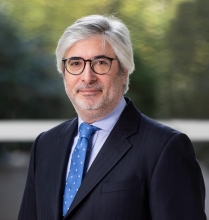International Arbitration Newsletter - February 2019 | Regional Overview: The Americas
The most relevant updates of The Americas from the global International Arbitration and ADR practice group at Garrigues.
BRAZIL
Codesp wins award in container terminal dispute
A Brazil-Canada Chamber of Commerce tribunal has issued an award in favour of the state´s port authority Codesp, that oversees South America’s largest container port, resolving a US$700 million dispute that began two decades ago.The tribunal found that insolvent Brazilian logistics group Libra was liable in full for its financial obligations under lease agreements for two terminals at the Port of Santos in São Paulo state. Codesp estimates it is owed approximately US$ 710 million.
The dispute relates to a 20-year concession agreement won by Libra to manage Terminal 35 at the Port of Santos in 1998. However, the group refused from the outset to pay the agreed port tariffs, arguing that the infrastructure delivered by Codesp was different to what had been promised. Libra filed its claim in October 2016.
In its award, the tribunal unanimously found there was no basis to grant Libra’s request for a financial rebalancing of the contract. It held the group should pay the amounts agreed in the contract, subject to interest and penalties applicable for Libra’s default.
Colombia
Colombian Bank Treaty claim moves forward with PCA panel selection
UK arbitrator John Beechey has been appointed to preside over the UNCITRAL claim brought by US brothers Alberto, Felipe and Enrique Carrizosa against Colombia at the Permanent Court of Arbitration (PCA) under the US-Colombia trade promotion agreement.
The dispute relates to a US$330 million treaty case brought by the investors and owners of a nationalized bank in Colombia called Granahorrar, which had been nationalised following financial difficulties.
In 1998, the state nationalised it for a second time as its shareholders struggled to repay loans of more than 600 billion pesos (US$200 million) due to the effects of an economic slowdown that would lead to a recession in Colombia in 1989.The Carrizosa brothers are seeking at least US$323 million in damages in the UNCITRAL claim. A hearing on jurisdiction is scheduled for 2020.
PANAMA
ICSID tribunal dismisses disclosure request in Panama corruption claim
An ICSID tribunal has denied a request by two US subsidiaries of Japanese tyre-maker Bridgestone for document production from Panama in a claim involving judicial corruption in Panama.
The underlying ICSID claim, filed under the US-Panama trade promotion agreement, relates to a 2014 decision by Panama’s Supreme Court ordering Bridgestone to pay a US$5.4 million fine after it unsuccessfully opposed the registration of the “Riverstone” trademark by Panamanian rival Muresa. Bridgestone had argued the mark was similar to its own trademarks and therefore likely to create consumer confusion.
The Bridgestone companies allege in the ICSID case that the ruling of the Supreme Court was a denial of justice and “so clearly and manifestly wrong” that it could only have been procured by corruption.However, the tribunal refused the claimants’ request for disclosure of any communications between the three judges or documents relating to the Muresa case, saying the privilege that protects judicial deliberations should be protected and that an order would violate the strict confidentiality requirements of Panamanian banking law.
VENEZUELA
Venezuela defeats treaty claim from UK mining company
An ICSID tribunal has rejected claims from UK mining company Anglo American on alleged expropriation brought under the UK-Venezuela bilateral investment treaty in 2014 over the state’s cancellation of concessions owned by its indirect Venezuelan subsidiary MLDN for the Loma de Níquel ore deposit.
The dispute relates to Anglo American´s investment in the nickel mine in 1993 and the Venezuelan government´s cancellation of 13 concessions owned by MLDN, with Venezuela assuming control of the ore deposit, processing plant and other works and facilities.
Anglo American’s main claim was that Venezuela’s seizure of the processing facility at MLDN amounted to a violation of the BIT’s provisions on expropriation and fair and equitable treatment (FET). However, the majority found that Venezuela could not have expropriated the assets, as a clause in the concession contracts provided that the processing facility would revert to Venezuela free of charge upon expiration or termination of Anglo American’s concession.
Paris court partially sets aside treaty claim award against Venezuela
In a decision dated 29 January 2019, a French appeal court has partially set aside a US$1.3 billion investment treaty award in favour of Canadian mining company Rusoro against Venezuela, annulling the findings on quantum in the award, while leaving intact the findings on liability.
The underlying dispute relates to a treaty claim brought by Rusoro against Venezuela on the state´s expropriation of Rusoro’s gold mining interests in 2011 in violation of the Canada-Venezuela bilateral investment treaty, obtaining an ICSID additional facility award in 2016 ordering Venezuela to pay US$967 million plus interest.
The French court upheld arguments by Venezuela that the tribunal exceeded its jurisdiction under the BIT when it awarded compensation that did not reflect the value of the business at a date immediately preceding the expropriation. The court found that the tribunal had based its calculations on the value of Rusoro's shares in 2008 without taking account of their subsequent decline in value as a result of restrictions on gold exports imposed in 2009.
Contacts



-
+52 55 1102 3570
-
+52 81 8153 3900
-
+52 442 296 6400
-
+57 601 326 69 99



